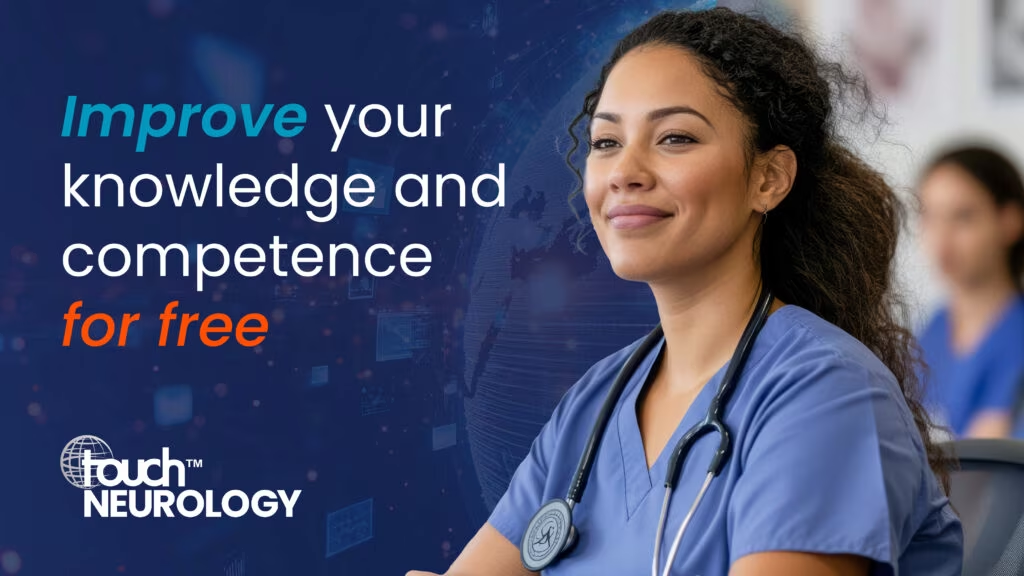 Ahead of the EMSP 2025 Annual Conference, taking place this May in the historic city of Prague, we spoke with Herbert Temmes, President of the European Multiple Sclerosis Platform (EMSP), about the key themes driving this year’s event. With a spotlight on prevention, growing momentum around the role of patient participation, and a continued push for policy change, this timely gathering brings together people with MS, clinicians, researchers and policymakers from across Europe.
Ahead of the EMSP 2025 Annual Conference, taking place this May in the historic city of Prague, we spoke with Herbert Temmes, President of the European Multiple Sclerosis Platform (EMSP), about the key themes driving this year’s event. With a spotlight on prevention, growing momentum around the role of patient participation, and a continued push for policy change, this timely gathering brings together people with MS, clinicians, researchers and policymakers from across Europe.
In this Q&A, Herbert Temmes shares why prevention is such a crucial and timely topic, how the MS community can be more involved in shaping decisions, and what outcomes he hopes the conference will deliver for years to come.
1. Why was prevention chosen as the theme of this year’s conference, and why is it so timely?
There’s been a long period—around about the last 25 or 30 years—where immunotherapy has been at the centre of the debate. People with MS have had increasing access to treatments. We started in the early 1990s with interferons, and now we have a lot of alternatives. The most recent are anti-CD20 antibodies, and in total, there are around 20 disease-modifying therapies available.
But there are still a lot of unanswered questions in MS. One of them is how we can prevent the starting point of MS. When you look at people with MS and their families, sometimes you can see MS across generations—grandparents, parents, and children. There are a lot of questions around that, and people often ask, “How can we prevent MS so that the next generation is free from MS?”
And to your question—is it timely? Yes. In recent years, we’ve seen the Epstein-Barr virus, known as one of the key factors in the development of MS, become a hot topic. A lot of research is going on. Researchers are trying to find a vaccination to prevent MS and other diseases.”
There are also other factors. We know from research with twins that about 30–40% of MS has a genetic basis, but the rest is still not clear. If one of the identical twin has MS and the other doesn’t, you have to ask, how can that happen? That’s where lifestyle—Western lifestyle or environmental factors—comes into play.
There are many questions around prevention, and I think we have to bring them onto the agenda. We need to create a bit of pressure—on politicians, on the research community. Because the numbers of people with MS are rising across Europe. Years ago, we estimated around 1 million people living with MS. Now it’s 1.2 million or more.
In some countries, we’ve seen the numbers double in the last 15 to 20 years. In Germany, when I started, we were talking about 120,000 people with MS. Now it’s around 300,000. And I think in Scandinavia and Western Europe, it’s almost the same. The numbers are growing rapidly.
2. How can we further involve people with MS in shaping research and care decisions?
There are different ways to do that. We are asking—and it’s a recommendation from EMSP and all of the national MS Societies too —to strengthen the voice of people with MS in different areas: research, politics and social affairs.
In the whole society, we need to be more aware of people with chronic diseases—not only MS—because 10–15% of the population lives with chronic conditions. MS is a good example because it often starts early, in the age of 20–40, when people are finishing education and starting their careers. That brings up a lot of questions, so it makes sense to involve people with MS in every decision.
Our recommendation is: don’t speak about us without us. People with MS should be involved in all discussions and decisions.
There are different ways to do that. In research, it’s becoming more common to involve people, but we also need this at the European and national levels—in decision-making bodies like the EMA and similar authorities in other European countries like UK.
In clinical trials or any kind of research, involving people with MS from the beginning is valuable. It helps researchers, it helps pharmaceutical companies, and it helps anyone trying to find solutions, for example with healthcare aids. People with MS have a different perspective—they know what real life with MS is like. They know the barriers, the daily challenges. So it’s a win-win situation for everyone.
3. What policy changes do you hope this conference will push forward?
With policy, we all know—it’s always a struggle. It takes time to see changes. But I want to look back to last year. The conference was in Brussels, also around May, and we knew the EU elections were coming. We brought our recommendations to politicians across Europe.
We learned that some politicians are very interested in MS. They support us and our recommendations and our memorandum.
I want to highlight 3 points: Looking at the data from the MS Barometer, we see that only half of people with MS in Europe have access to treatment. Out of 1.2 million people, only 50% are receiving basic immunotherapy. But we know that the earlier you can intervene, the better the long-term outcomes. There’s a lack of access to treatment. The same goes for rehabilitation. Many people don’t have access or have to pay out of their own pocket. And we know from research that rehab is essential. In a way, it’s a form of prevention, because it can postpone disability and the long-term complications living with MS.
The third point is integration into the workforce. We need to reduce early retirement among people with MS. We’re losing a lot of knowledge and experience. And all over Europe, we’re facing challenges with workforce shortages. If you have well-trained, educated people and lose them because of MS and a lack of support, that’s a loss for every country and every company.
4. Why do you think events like this are important in bringing together patients, clinicians, and policymakers?
As I mentioned earlier, the exchange of experiences and perspectives is so important. When clinicians, politicians, and people with MS come together—as we will in Prague—they can learn from each other. All sides can see the different challenges and realities.
People with MS can better understand what politicians and researchers face—like funding issues or complex trial processes. It helps people realise that change often depends on systems, not just individuals. On the other hand, researchers and policymakers gain a deeper understanding of what it really means to live with MS. That awareness is key.
Coming together builds a platform for shared knowledge and a sense of community. Everyone sees there is a shared aim—to find solutions to end MS. And when people see how others are living with MS, we hope it makes them more aware, more sensitive to the need for action. They see there’s a reason to do more.
5. What impact do you hope the 2025 conference will have on the MS community in the years ahead?
I think highlighting the prevention theme is so important. It’s one of the hottest topics right now, and I think we can spread the message—that the whole community wants to see results. We want to see signs, decisions, and commitments to future research.
We want to see that society is behind the MS community and behind research—really sharing the idea of ending MS.
Disclosures: This article was created by touchNEUROLOGY in collaboration with Herbert Temmes and ESMP. No fees or funding were associated with the publication of this short article.
Citation: Temmes H. Prevention in focus: A Q&A with Herbert Temmes, EMSP President, ahead of the EMSP 2025 Annual Conference. touchNEUROLOGY. 7 March 2026.
Register now to receive the touchNEUROLOGY newsletter!
Don’t miss out on hearing about our latest peer reviewed articles, expert opinions, conference news, podcasts and more.



